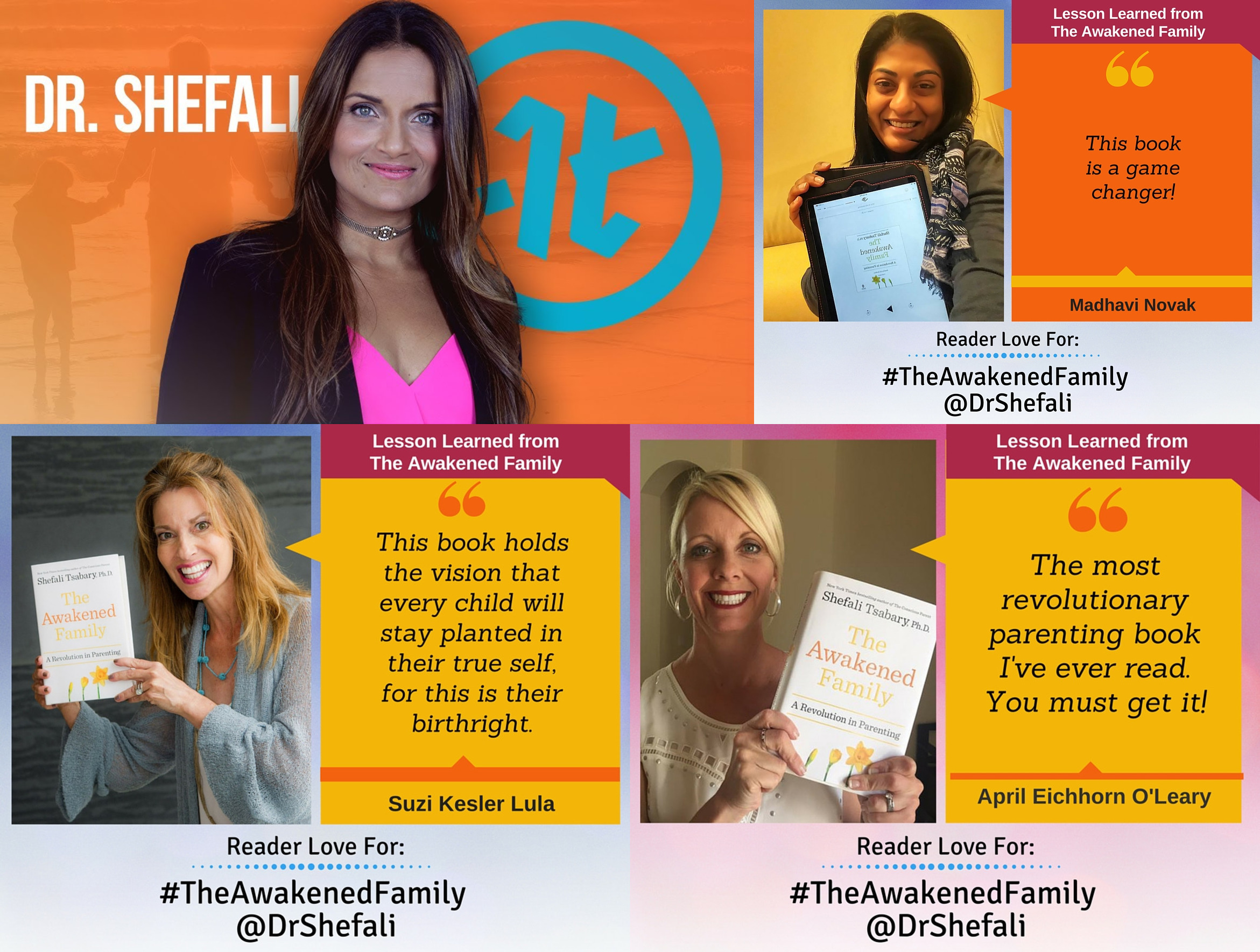Perhaps you think a super-effective discipline strategy, or a great communication technique would be the most important thing you need to improve your parenting. Or perhaps the top three things that will transform your child into a compliant angel.
What if the most important piece of advice was none of the above, and was, in fact, something quite unexpected and out of the norm?
What if you realized that everything you thought you knew about raising children was in fact wrong?
Ah, perhaps this will stop you in your tracks…?
Conscious parenting expert and author of THE AWAKENED FAMILY, Dr. Shefali is shifting the parenting paradigm with her unique and revolutionary approach to parenting. Contrary to other parenting models, her approach focuses solely on the transformation of the parent, as opposed to the child. Instead of “fixing” the child, she puts the onus of evolution, change and growth on the parent.
According to her, much of the stress that families experience is due to this misguided focus on fixing the children. “It is only when we release our children from the burden of being fixed and controlled by us that we will unleash their potential to be authentic, empowered and free.”
She explains that the entire parenting paradigm needs to undergo a revolution. “We need a profound shift in perspective,” she explains. “We need to let go of our focus on materialism, achievement and business, and instead re-haul what it means to raise thriving and resilient children.”
Let’s take a look at her approach to parenting which is fast taking the world by storm. Oprah has hailed her new book: The Awakened Family: A Revolution in Parenting as a true game changer, which I reviewed for the research center web site.
One of her core messages is that children do not need what most parents think they need. She says that her most important piece of advice is to revolutionize our ideas of what our children need most from us.
Most parents believe that children want things from their parents. The newest gadget on which to play games or the latest iPhone; new shoes or designer clothes; A trip to Disney World or tuition for a top university; or even a big house and yard.“Sure”, says Dr. Shefali, “these things are always nice. Every kid enjoys getting something new or going to an exciting theme park.” But she explains that what all children truly yearn for goes much deeper. It doesn’t involve fancy clothes, the latest electronics, pricey trips, or even a high-brow education.
Every child wants to know three things:
- Am I seen?
- Am I worthy?
- Do I matter?
When a person feels seen, feels worthy, and feels they matter, they grow up to live an empowered life.It isn’t gadgets, clothes, vacations, or even the best of educations that enable a child to feel good about themselves. The key to how they see themselves and feel about themselves lies in how we see them, how we feel about them — and this is reflected in the connection we experience with them.
It’s through our gaze, our presence, our attention that our children grow up with a strong sense of self. We communicate their importance in all our everyday interactions with them. When children aren’t valued for who they are rather than for what they achieve, they grow up anxious and may well become depressed. Many of our young people are so deprived of our attention — of simply being seen for who they are — that they self-harm. Getting drunk, taking drugs, engaging in inappropriate sexual relations, even cutting themselves–all of these are cries for our attention, manifestations of a deep yearning to be seen and known.
A child develops a solid sense of self when who they intrinsically are is seen and affirmed. A sense of their worth springs from whether we truly connect with them as an individual who’s unique, not a clone of ourselves or someone in our fantasy.“Do you see me?” This is the big question your child is asking every day. “Can you see me for who I am, separate from your dreams and expectations for me, separate from your agenda for me?”
A child doesn’t need to be a superstar to be valuable. To simply be ordinary is perfectly okay–to be just the way they are, and know they are treasured. It isn’t enough to tell your child you love them. They need to feel lovable within themselves. A sense of their worth flourishes when the way we look at them, the way we listen to them, and the way we speak to them reflects just how lovable they are. This is how we empower them–how we draw out in them the powerful sense of self that will carry them successfully through life.


